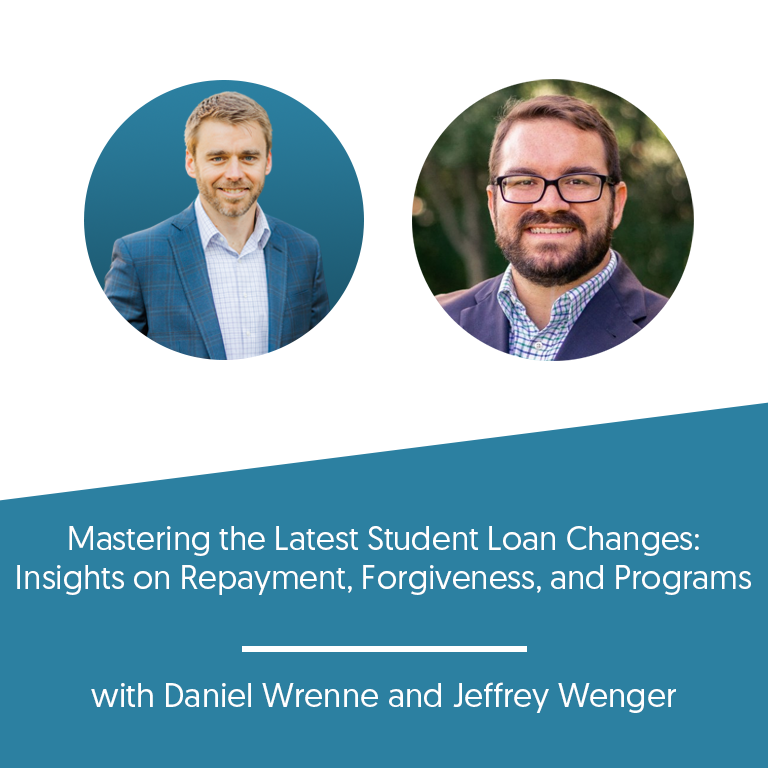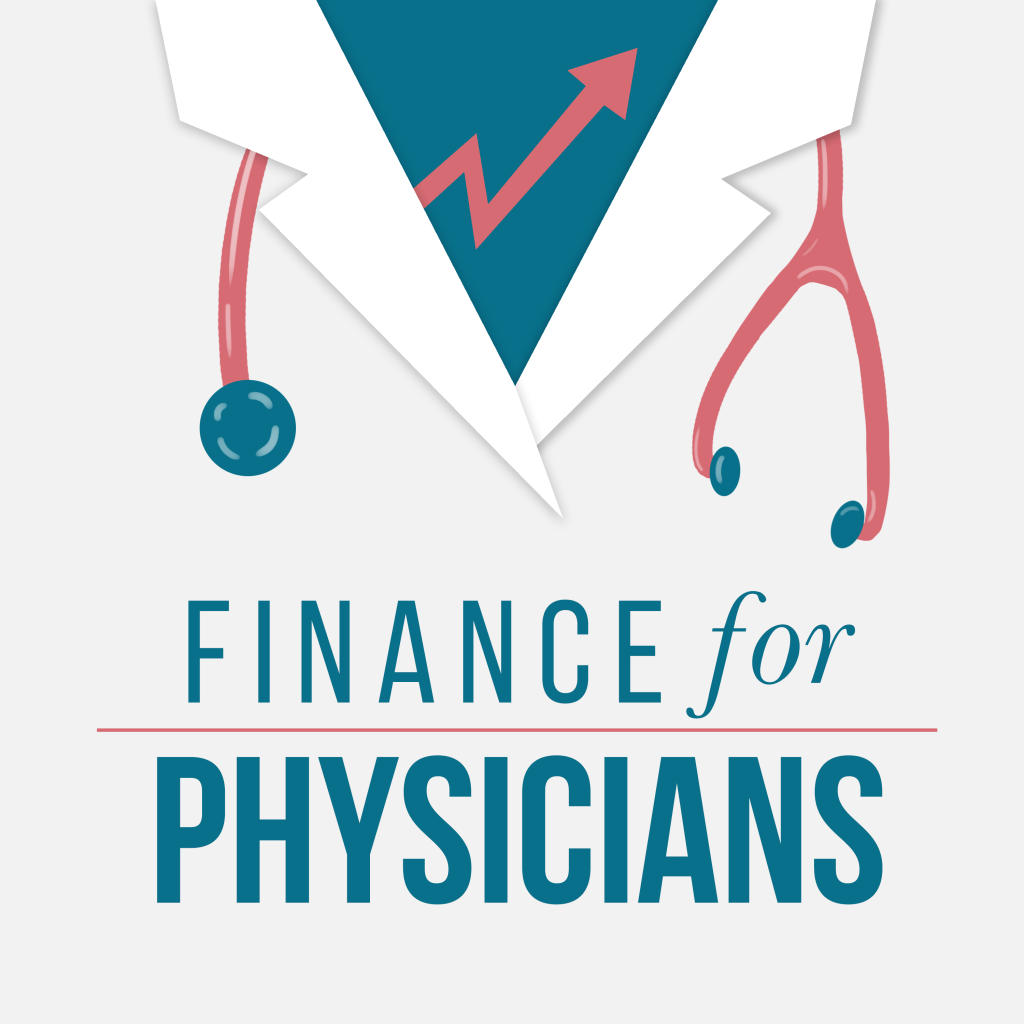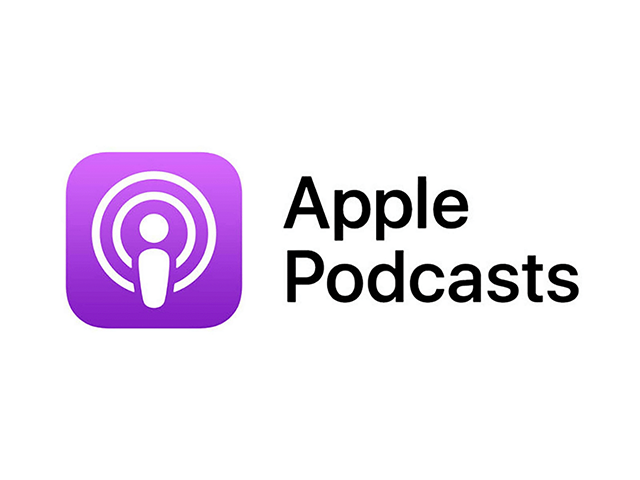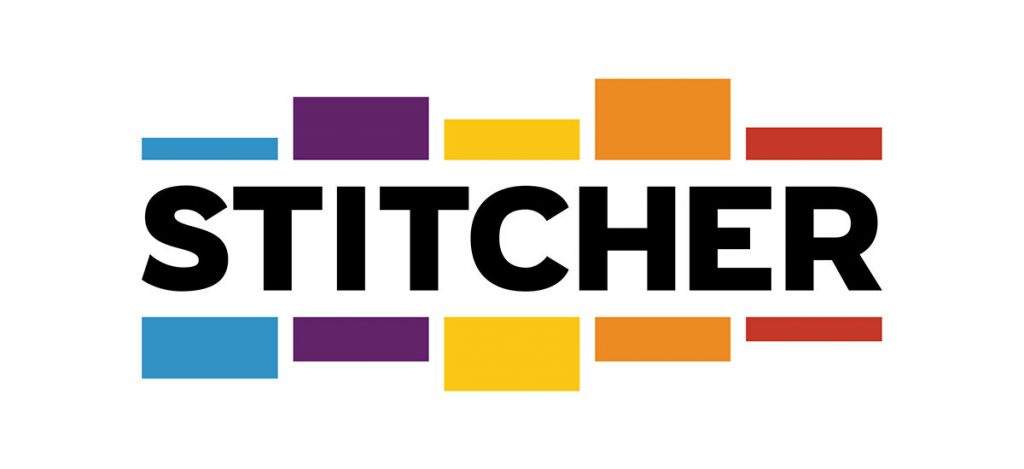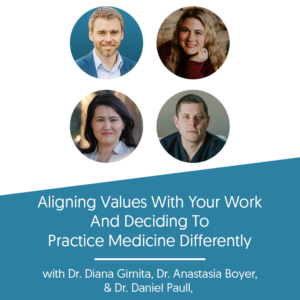Welcome to “Finance For Physicians,” the podcast dedicated to equipping medical professionals with the knowledge they need to navigate the world of personal finance.
In this episode, Daniel Wrenne is joined by Jeff Wenger to tackle the ever-changing landscape of student loans, providing valuable insights into the latest updates that impact physicians. Dive into the intricacies of repayment strategies, loan forgiveness options, and the range of programs designed to assist medical professionals in managing their student debt. Whether you’re a seasoned physician, a resident, or a recent graduate, this episode offers a comprehensive understanding of the recent changes that affect your financial journey.
Join us on “Finance For Physicians” as we help you master the latest student loan changes and empower you to make informed financial decisions.
Links:
Connect with Jeffrey on LinkedIn
Connect with me on my LinkedIn
Contact Finance for Physicians
To schedule a call with one of our awesome planners, book HERE.
Full Episode Transcript:
Daniel: Hope you’re having a great day today. I’m talking with Jeffrey winger. Jeff is one of the financial planners in our planning firm and has been on the show several times before. if you’ve listened to a lot of our past episodes, I’m sure you’ve heard them. so Jeff has taken a special interest in student loans of all things and has.
been on top of a lot of these big changes that have been recently getting rolled out. some of you have probably heard some of the news on this. There’s been some brand new repayment plans and changes to how PSLF works and other forgiveness programs. And on top of all that, they’re, of course, gonna start charging payments and interest again.
So with that starting to come back into play and with all these new big changes, this really starts, starts to pave the way for opportunities, and potential for improvements and efficiency to be gained. but. In order for that to happen, you got to have a plan. So we’re going to be talking about what this might mean for you.
Make sure you understand at least the basics of what’s changing and how that’s going to roll out. And I think, especially for those of you that have federal student loans, you know, there’s a lot of potential for you to, gain some value from understanding what these are going to look like.
So with that being said, let’s jump into today’s conversation.
Daniel: Lots of student loan stuff cooking. So I wanted to bring you in. It’d been a little bit since you’ve come on, but I know. Jeff is my guy with student loans. he kind of like enjoys this stuff, looks at it on the weekend level of knowledge with student loans.
So, he’s definitely in the know with student loans and they have been changing like crazy and there’s some new stuff cooking. and also some of the big things ending that I wanted to talk through with Jeff today. And make sure you guys were in the loop on some of these big changes, coming down the pipe.
Jeff: Yeah, you sure make me sound like a real pleasure to have at a party. The guy that reads student loans on the weekends, huh?
Daniel: Yeah. I mean, you know, it’s good to have, but
Jeff: scary that it’s probably a little bit true. So yeah, you’re right though. There have been a lot of changes. I mean in the last five years, but in the last year, just on its own, we’ve had a lot of changes, mostly in the good direction as far as loans go, a lot of the headlines tend to be negative ones, right?
Like. student loan cancellation blocked. I guess that depends on who you’re cheering for there, but those are the ones we hear about, but there’s bigger news, bigger changes really, than, than any of the things that get headlines. especially as it applies to, our physician families and those that are looking at, you know, paying on large amounts of debt and maybe even looking at some of the loan forgiveness options that are.
Are not as headline driven.
Daniel: Yeah. And I think like you were saying, these are much bigger, changes. And I think I’m still hesitant to say this, but I think that there’s going to be a little more certainty, going forward. Cause there’s been like, there’s been a ton of things changing, but it’s been like.
Everything’s on hold kind of, so it almost feels like there’s, they’ve taken away all the urgency to do anything about anything related to student loans. It’s just kind of like, well, I’m not paying any interest and I’m not making any payments. Like things are kind of on hold and it’s been like that forever.
It feels like. And so I think that’s a little bit of a positive too, is that it’s hopefully going to create some certainty or, clarification and allow us, we’re planners of course, so we always want to have a plan and, allow us to be able to start making some plans again around our student loans, which will, I think help you guys.
As well, just to start to have a little bit more certainty around, like what things are going to shake out. And the real benefit is for a lot of you listening is the PSLF stuff. Like Jeff was saying too, like these, one time forgiveness things. They’re, you know, okay, but like PSLF is, is huge and, that adds up to a lot.
And you know, more of you are able to qualify for that, that’s a huge potential win. So there’s a couple of those provisions too, that might impact a lot of you guys. So, maybe, Jeff, we could start with. I think the one most people have heard about the payments, of course, are going to resume, right?
Like, when’s that happening? What’s the details of that?
Jeff: Well, yeah, you just mentioned that there hasn’t been an urgency to some of this for a while because there are these deadlines of when payments would kick back in and they just kept getting pushed back. But at this point it is, I’m going to give it a 99% certainty, but that payments are resuming here and they will be resuming as of October.
So, the pause officially ends here at the end of August, which at the time of recording here is less than a month away. And then interest will start accruing again in September with payments actually getting due dates and resuming in October. And so it is coming payments will resume, and they should be kicking back in at whatever your previous payment level was, if you were on an income driven plan, or I guess any plan that you were on before the loan pause started so.
And then. Maybe you weren’t even on a plan or had loans when the payment pause started. So
yeah, that’ll be something to keep an eye on as well, but it should resume right where they left off.
Daniel: Yeah. So there’s a lot of, considerations there just with that one change, I guess, or, program ending. And so for example, if you’re one of those.
In the situation where you’ve been kind of like holding out on refinancing to a private loan, because why would you refinance something that has a 0% interest rate? I know a lot of people are in that camp. And so if you’re in that situation, it seems like now’s the time to start looking at seriously, like pulling the trigger on refinance, or at least comparing those interest rates again.
because September, you know, you’re back Um, interest paying world. And then with income recertification and payments coming do again, everybody’s situation’s going to be different. So that’s how it always is with these things. but like, I think for a whole lot of people, like a big slice of the.
Student loan borrowers are going to be like better off like sticking with their old default payment, which will kick back in. So your most recent payment that they have on record or your most recent income verification, that’ll be what will kick back in. Like Jeff said, once there’s October payment start, and for probably a large chunk of you guys, that’s going to be great.
And you kind of want to let those. Roll as long as you can. And the longer the better, but then you got to think about, um, I guess there could be exceptions to that. So that’s why I say like, it depends on the circumstances. Like some people might still want to recertify, especially if circumstances have changed to where the payment could be lower.
So that’s like an exception to that. situation where you got to really look at your situation. but generally speaking, a lot of you guys are going to want to like, go ahead and, you know, take that as long as you can. And, but still you got to start to think about like, when is that next recertification as well?
and we should know that information already as well. Right, Jeff. Like, when your next recertification should be?
Jeff: Yes, so, can certainly find that, and it, sometimes it’s hard to dig in and find, but you can find it on studentaid. gov, you can get a file there and look for an IDR anniversary. Or your student loan servicer may also have this, but that’s been a little more hit
Daniel: or miss
Jeff: but the big picture is that right now it is very likely that no one that we’re talking to has to recertify income prior to the end of the year. And likely. Some time well into 2024 at this point, if you had a, payment date or a recertification date that was happening throughout the year, anytime beyond six months past the payment pause, it gets pushed out another year.
So basically if, uh, Daniel, if you had a July certification date and it said it was July of 2023, that’s now July of 2024. If you have, a December certification date, December of 2023, that is also within six months after this pause ends. And so that would also then get pushed back a whole nother year.
So
Daniel: let me make sure I understand. So if it’s within, if your current date is within six months of the pause. Or ending date of the pause, then it goes another year,
Jeff: right? So the effect of that is basically no one should have to recertify their payments again until 2024 at some point, possibly even a little bit later, but the vast majority of 2024.
Daniel: So if my repayment date was June of 2023. It’s going to be June of 2024, right?
Jeff: Exactly. that’s,
Daniel: if if it was like November, 2023, it’ll be November 2024, but if it was like, let’s see, March of 2023,
Jeff: That could be in that borderline area where you’re going to need to examine this a little bit more based on final guidelines on, on this,
Daniel: but yeah, so repayment plans. I think the takeaway for you guys listening. Is keep an eye on your repayment plan recertification date, but that’s going to be important to understand when your next income recertification date is, because that’s when they’re going to require you to recertify there.
Like I said, there could be cases where you want to do it earlier than that. But you want to know when that date is so that you can, ideally, you, think about possible strategies. Cause there’s typically like, been a while since we’ve had to do this. Cause nothing’s been happening with student loans.
But once we go back to the rules, it’s going to be like, okay, well, let’s think about how we want to file our taxes or do we want to. Um, try to do it as early as possible or wait to the last minute. Or do we want to do pre tax retirement plans? Or like, there’s all kinds of strategy around, maximizing PSLF or even long term forgiveness, to think about.
So that’s, an important takeaway. so payments resume. And clarify what your increment payment certification date is. That’s an important takeaway. it’s been so long, you don’t even remember what your payment was, it would probably be good to look at that for budgeting purposes. because you want to kind of plan for that.
I think a lot of people, I think we did a show on this of. COVID, forbearance, lifestyle creep, but I, a lot of the families we worked with, and natural human nature would be that you’d get used to spending those payments. so you got to think about how are you going to start making them again too, right?
Right.
Jeff: I actually remember you doing that, that show, Daniel, and I remember the advice. was to go ahead and save those payments along the way so that you’re used to making that payment. just in case anyone out there did not do that, or maybe you didn’t listen to that episode. Yeah, it’s a good time to go ahead and start to build that into your budget now.
Daniel: Now, if you’re working with us, we can help you with it. We’re keeping an eye on it already. So, all right. So some of the big new developments. so maybe we can start with a new Payment plan that is out there.
Jeff: Yeah. So that’s a, that’s probably the biggest change to look at because it’s going to have some trickle down effects into other options, other ideas here too.
But yeah, there is a brand new repayment plan that’s been announced called the save plan or the saving on a valuable education plan, like how the acronyms work there, we got saved. That’s
Daniel: what it stands for
Jeff: Yeah. So if you had a valuable education, you can now save on it. I don’t know what they do for non valuable educations, but
Daniel: just kidding.
We gotta use a different acronym.
Jeff: Well, I guess good news, the SAVE plan is an option that is available for all of our student loans. So the federal student loans anyway. And so no matter what your education experience was, it’s going to be available for any loans. Yes. And it’s actually a replacement or you might even call it an improvement on the old revised pay as you were in plan or repay or repay E depending on how you, how you like to say that.
but yeah, it, in effect, it’s taking what revised pay as you were and had an in place and changing some of the, Numbers that are in there to calculate payments in a way that really is beneficial in most cases. And also allow us for a little bit of strategy within the plan that wasn’t there before.
So I guess the key components there that when we’re talking about how the payments calculated, the poverty level that’s factored into it has been increased from 150 to 225%. If you didn’t care about that part, what it effectively means is that payments are going to be lower on the save plan than they would have been on the equivalent revised phase.
You were on a repay plan overall. That’s generally a good move or good direction there for the save plan.
Daniel: Is there a case where I want to keep, well, maybe to clarify, Repayee is not going away, technically, for existing borrowers.
Jeff: Repayee is morphing into the save
Daniel: plan.
Can I stay in Repayee if I want to stay in Repayee?
Jeff: no. So repay is, just changing. And so ultimately if you’re on repaid, that’s okay. Cause this is better only
Daniel: improvement. There’s no downside to this versus repay, right? So
Jeff: the poverty level they take into effect is higher, which means payments are always lower.
So payments are lower the borrowers. So this doesn’t apply as much to the med school debt, undergraduate debt. You’d pay 5% of income on in graduate debt is 10%. So if you were doing mostly undergraduate, then the payments lower as well. It used to be, it is just 10% of your income for current repay plans.
And the downside there though, is just like the current revised pays, you weren’t planned. There’s no limit to that income driven plan. So, that 10% of income is, is 10%, whether you, you know, earn 50, 000, 500, 000 or 5 million a year. So those payments, never hit a limit, which is also true on revised pays you weren’t.
So it’s. Still not a detriment to that plan, but something we’ll want to keep in mind in just a minute as we talk about the
Daniel: negative here. Yeah. so repay is gone, will be gone and be turned into. Save, and there’s only perks or only benefits relative to repay. now when we start to compare to like payee, there’s some downsides that could be substantial because there’s a cap on payee, like that cap for physicians, if you are on PSLF or even long term forgiveness, payee has that cap based on your income.
You can’t go above a certain threshold, which if you have a really high income, that’s huge. Potentially. how does that work for someone on payee?
Jeff: Yeah, that’s a great question. So on payee, it would be that you would never have to pay more than what you would normally have to pay to pay that loan off in 10 years.
So that’s the upper limit of your payment on some of the other plans that are out there. But revised pays you earn in this new save plan doesn’t have that limit. So if, you could pay off your loans for 5, 000 a month in 10 years, Daniel, that would be the upper limit on pays you earn on income based repayment.
Right. But on, on the save plan or advise pays you earn. that could go up to, there’s no limit. So you could, you could end up paying 10% on your income of a million dollars a year. And now that payment is significantly higher than 5, 000 a month.
Daniel: But can I stay in payee if I want to maintain that?
Jeff: Yeah. So for now you can, and if you are on pay as you earn right now, which is the plan that allows you to cap that you can stay on that plan. However, enrollment in that plan is going to go away less than a year from now. So in July of next year, there’s no more new borrowers, no more switching into pay as you earn.
So that gives us a little bit of time. So if
Daniel: I’m a, if I’m like a super high income specialty, And I’m in training early in training, and I don’t know if I’m going to be PSLF or not, I would really be thinking about maybe I should try to get into this payee deal before that window closes. Because it used to be that you always had that option, but you’re going to lose that forever.
Cause if you did end up in a PSLF type job in a high paying specialty, that pay becomes super valuable. So that’s an important kind of takeaway there. how does it work with all this Interest that’s built up in all these student loan accounts. That’s, not yet accrued for all these changes.
is there like a big, I mean, normally when you change repayment plans, there’s a capitalization event where all the interest gets added back to the principal and it gets, they start charging on that, but do you know how they’re going to handle that with all these changes? Yeah.
Jeff: So in general right now, what they’re looking at is a change in payment plans or like an administrative forbearance is not going to capitalize interest.
It may not go away, but that is a small step in the right direction on those loans, not ballooning to be gigantic as you make changes all the time.
Daniel: Yep. okay. are there other big provisions or considerations with save?
Jeff: So I guess. couple of other kind of interesting ones are that the old repay plan that it’s built on did not allow you to split your income.
So let’s say, you know, you couldn’t file taxes separately. It always took everybody’s income into account. And so that does present an opportunity now to file taxes separately and change how much
Daniel: income. So now everybody going for PSLF is super complicated. So
Jeff: everyone going for PSLF,
Daniel: everyone going for PSLF that’s married to a spouse that earns income is super complicated.
Jeff: It throws a, it throws another decision point into there. Right.
Daniel: Funny how anytime these changes come about, they’re like sold as simplification, but they seem to complicate things for a lot of people. That’s just the nature. I mean, I consider that opportunity. because we can be strategic and help you kind of like work around things.
But it is much more complicated when you’re, you have that added consideration of filing separately versus not. Absolutely.
Jeff: Absolutely. Cause then you got to go with the filing cost. You would cost more to file separate. Versus the savings potential and yeah, it’s really
Daniel: fun. That’s why it’s a beautiful puzzle.
And then what if you’re in a community property state and you know, Because taxes work differently if you file separately and…
Jeff: If you’re in a community property state, either get deep into the blogs on student loan planning out there.
Daniel: Or pay
Jeff: someone. And talk to a consultant because there are so many opportunities there.
Yes, to save money, if you’re going for
Daniel: PSL, you can hire Jeff and pay him. He will work you around all these rules and whatnot. And I mean, especially in that case, like you said, it’s worthwhile to, I think pay for advice. okay. So that’s the, new safe plan. Yeah. One other
Jeff: big benefit there is it eliminates a hundred percent of any remaining interest.
So if your payment’s not covering the interest, it used to eliminate 50% of what you weren’t paying on the repay plan. Now it’s a hundred percent. So if you’re not covering the interest.
Daniel: to do that on, subsidized loans for repay? Yeah, there was, uh,
Jeff: some nuances, but it was a small part of your several years on a certain
Daniel: portion.
It would now it’s a hundred percent on all the loans for indefinite. Yeah.
Jeff: Both subsidized and unsubsidized. It covers a hundred percent of any remaining interest. so for those that we have here that maybe are going into this payment resumption with a 0 payment or coming out of school or don’t have your plan settled quite yet, coming, you know, finishing residency and maybe not quite sure what that first job looks like, or you’re ready to get into that first job.
The save plan is pretty likely a good option. Unless you’re expecting a huge jump in income when you want to go to that pay plan because you’re basically getting an interest free loan
Daniel: for another year. Yeah. Yeah. It used to be, I mean, we did this back in the day, I guess it’s been 10 years almost since I, or even more than that, since we were talking PSLF, with people, but early on on that, like the difference between rate repayee and payee.
It was all about, this payment cap and the interest subsidy, part of the repay equation basically. And they were, it was probably a skewed towards repayee. Like the majority of people probably should get with repayee in training. but like maybe 25% would go with payee in training, but now that’s just swinging the pendulum further towards this.
Repay slash save sort of route where, I don’t know, the majority, probably 80% or more, 90% maybe of people in training should go with this plan over payee. And I guess payee is going to go away anyway. And this is going to be the only option. This
Jeff: will. Basically be the only option there’ll be the
Daniel: are the old options are going to still be
Jeff: so they’re They need all the synonyms sounding things like the overall thing we have to have here is an income driven plan idr, but that’s not a plan itself, right?
So you’ve got income contingent repayment that’s going away sounded a lot like an income driven, but it was income contingent, right? income based repayment The old version is gone, but the new version still remains. So that may still be an option to look at coming out of school or out of residency. New
Daniel: IBR is staying put
Jeff: new income based repayment.
That’s what, and if you don’t know what new is, it’s just, yeah, it’s. It’s still available. We’ll put it that way. It’s a lot like pay as you earn for brand new borrowers. So that has a limit of if you’ve made more than 60 payments on this new plan, you can’t go back to it. But it’ll still be available. So, but then for the vast majority, and this is what we’re seeing as we look at the loan balances, the payment options, the save plan is going to be the best option for, I would say 80 to 85% of the individuals we’ve looked at so far, because, because it is generous and the payments are lower until you hit that cap.
So.
Daniel: Okay. So generally speaking, this is, this is a win.
Jeff: Generally speaking, a win. Unless you got a
Daniel: loan. You do have to make payments. Yes. But.
Jeff: Low balance for the loan or high income, very high income to that loan balance would be the two things to keep an eye on.
Daniel: I guess it’ll be easier to have zero, zero dollar payments in training though.
I would, I bet that’ll be more common as your payment in air quotes, it will be zero or low in training. Cause your income is low. Cause they’re using a higher poverty threshold. We’ll have to see. okay. So that’s a big change generally for the better.
Jeff: That’s a big change. That’s a technical change too.
I think a lot of the other ones are a little bit easier to say. Yeah, that matters to me. There are, there are a few other ones out there, right?
Daniel: Yeah. Okay, cool. So, PSLF is also having some changes like the way that you qualify. So full time employment, I know there’s some changes. Well, there’s changes around how they define your employer and then also what they consider full time because you always have had to been full time, employed, in order to qualify.
So let’s talk about those big changes. those can be. These can be massive for some people. Oh yeah.
Jeff: If it applies to, to the individual, like these are game changers to some employment decisions that we see in some plans overall, probably the easiest one is that the definition of full time.
Has been simplified. And so now it is a straight number that says if you are working 30 hours or more per week at a nonprofit or multiple, a combination of nonprofits that, that add up to 30 hours a week, you are full time in the eyes of PSLF.
Daniel: And that is, Independent of like, say your employer says you’re part time or you, maybe you don’t even get benefits, right? Let’s say you’re a physician. That’s 0. 6 and a full time physician, one, full time equivalent is like 80 hours a week. So 6 is whatever that is. 60% of 80 hours, greater than 30.
So, yeah, so
Jeff: it was, yeah, previously it was like an hourly requirement. If there was an absence of a clear definition from the employer. So, you know, some places would call 32 hours full time. Others were 36 or 40 or, you know, you’re going on the FTE scale, right? It could be just 0. 6 doesn’t count, but 0. 7 did.
And so now this gives a definite definition of. If my employer if and I send them a certification form and it says 30 hours a week and they sign off on that, that’s going to count, no matter what they call full time or
Daniel: not. Yeah, that’s a win as well. That’s making it more generous. I know there’s a lot of physicians that are part time and air quotes, but really they’re full time.
and then there’s also a lot of you guys that are like on the window of full time, part time and your employer maybe calls you part time and that’s been killing you for PSLF, so 30 hours is the line that is much more straightforward.
Jeff: Much more straightforward and certainly helps out for anyone that’s just looking to scale back or a spouse that’s looking to scale back and still not take, PSLF off the table completely.
Daniel: Yep. Okay. So that’s, that’s more straightforward. What about the other changes related to your employer? This is a, this, yeah, this is definitely a little bit more complicated, but it’s a big win too.
Jeff: This one is less straightforward. But still certainly a help here and that’s the definition of a PSLF qualifying employer has now been expanded, where, particularly in states like California or Texas.
if you are employed by, so if there’s a state statute that says that you cannot be directly employed by the nonprofit, and that’s very common with, for example, Kaiser Permanente Docs over in California would be a very common example. You can now go to the nonprofit level and get their contact and their employer identification number.
To put in as your employer and get credit where you used to, have to go to, if you went to Kaiser Permanente, for example, not a nonprofit. So it just wouldn’t count. That’s your employer. But if you’re a Kaiser Permanente doc that works at a nonprofit hospital, a. If you go to nonprofit hospital a, that wasn’t allowed to employer directly, they can sign off on that employment.
So it basically, it expands that for certain, certain
Daniel: individuals. So, yeah. And it has to be that your location, wherever you’re at. has to have, it’s designed for the setup where the law says you cannot be directly employed by a nonprofit hospital. and so they’ve created these like employer organization workarounds that are typically for profit.
And that sort of circumstance, you can go straight to the nonprofit and get them to sign off on your employer certification and therefore begin to qualify for PSLF. Exactly. I imagine there’s going to be some confused employers. You think so because they’re going to be like, what are you sending me? Yes.
I don’t know. I just imagine that.
Jeff: Yeah, this is a brand new change effective as of July. And so there’s not a whole lot of history here to draw on. But if you think that this applies to you, I’d be. You know, communicating very proactively with the hospital or the non profit that basically your provider, your employer is a contractor of, find out who you should go to, to certify that.
And then you can get that employment certified at the hospital level instead of your direct level, like where you, besides your paychecks. Right.
Daniel: Yeah. So first thing is you got to figure out if you’re in an area where laws require you to be. Not employed by non profits second of all, if you’re in one of those areas, go to the directly to the non profit, not to this organization you’re working for, like Kaiser Permanente, you’re going to the main Kaiser, like the non profit hospital division of Kaiser and not your physician employer for profit group.
Um, and you’re talking to them about like, who do I talk to, to get signed off on this? And I imagine there’ll be like, what are you talking about? I mean, in some cases, I imagine there’ll be like, what are you talking about? So it’ll probably, if you’re like the trailblazer, that’s like doing this first, you’ll probably have to be like educating them.
I just can see that happening. So I wouldn’t be surprised that response. And then if I hear that response, I’m going to start sending them all these laws and provisions and student loan stuff and be like, here’s the stuff. It’s right here. and then you’ll have, you know, probably have to get them caught up to speed, but that’s a good thing.
Probably
Jeff: the easiest thing to ref references on studentaid. gov. They have a, what is a qualifying employer FAC? And in there, there’s a, a dropdown that kind of explains in a couple of paragraphs to at least get the conversation started, You know, what’s the worst case scenario you could ask and, and, and go down this road and hear no, right.
But for, for somebody that, that it might apply to, I mean, this could be a game changer if you’ve been working for five years and now you’re all of a sudden eligible for PSLF where you weren’t before.
Daniel: Yeah, that’s big time. I mean, it’s straight forward. Um, but I imagine there’ll be, it’ll take a little while to get this all sorted out.
is it just that situation, nonprofit, like where you’re not allowed to be employed by the nonprofit set up or there are other people that would potentially, wasn’t there some, changes around independent contractors?
Jeff: yeah. And it, it’s basically the same, same issue at play, but maybe you may be structured in a way that you’re employed by.
A, what they call a contractor organization, like a team health, potentially, especially if you’re in, again, I’d say Texas or California, you know, put yourself on red alert that this could apply to you. other states, not, not nearly. Almost no chance, in most other states. And, but then it would also apply to if you’re in the same situation where by state statute, you can’t be employed by the nonprofit, but you’re directly contracting with them and being paid 10 99, or, you know, you have your own S corp or something like that.
That still could work out as long as you’re being prohibited from that direct relationship. By state statute.
Daniel: so like a team health physician working for team health or they’re not working for team health, they’re intermittent contractor, team health, but say they’re working in a nonprofit hospital.
is that kind of in the gray or is that.
Jeff: that would come down to the state, whether it’s. If it’s set up that way, I’m in California and it’s, if it’s set up that way because you are not allowed to be directly employed, then that counts. Mm-hmm. ,
Daniel: if it’s just part I am curious about in that scenario is like, I know team health typically is not in existence.
To work around that rule, like team health is designed to work nationally and independent and allow for physicians to be independent contractors. whereas these physician Kaiser example, employment, groups are designed to employ physicians because they can’t work directly for the nonprofit. so I wonder how that.
Works. we might be getting into the weeds needs to get shaken out still, but
Jeff: I’d say the worst case scenario is you go down this road and you ask the hospital and say, Hey, is there somebody that can sign off on this? And they say, No, you dummy. That’s not how the state works. Right. Like, Oh, okay.
Sorry. I’m not a student loan expert. Okay. but yeah, I think there, there’s certainly gray areas that are going to be sorted out over time as well. which seems to be the case with any of these student loan changes that happened to
Daniel: right. Okay. So California, Texas, for sure. if you’re actually like physically working in a non profit hospital, but like you’re not employed directly by a non profit, this is something you for sure at least should be looking into, and, and kind of.
Start starting to do a little homework on this and it could be a big potential benefit. All right. All Cool. Well, um, consolidation. There’s a small change here on consolidation. This change should have happened a long time ago. I think.
Jeff: Oh yeah. But it is messed up a ton of people in the past and that is, consolidating loans now is not going to reset your clock at zero payments.
So it used to be a sell off. Right. or the term amount. So, know, it used to be consolidating out of your old direct loans or out of your old direct loans would say you had 50 payments, five year, you know, four years in the books and you’re like, I’ll do a consolidation and get loan number six out of five, you know, put on there too.
And then your 50 payments went to zero, no more payment progress and, devastating that’s happened to,
Daniel: yeah, but then they decided to give it back to him over COVID. And, but then a lot of people, it, a lot of people, the worst situations was when that. That caused you to not get any PSLF benefit anymore and you refinanced out.
And then that’s a sad, unfair situation, but you know, that’s how these go sometimes. But, um, at least they’re fixing that going forward, which is good news. Yeah. So
Jeff: going forward, it’ll be the weighted average of the payment history. So, you know, if you had three loans that had five, 10 loans with a, it depends on the balance and the loans.
And they
Daniel: throw it just like they do with the interest
Jeff: rate. It’s just like the interest rate where it gets averaged out with a weighted average and so you’d have a weighted average of that. So you wouldn’t have the longest payment history, but it wouldn’t be reset at zero either.
Daniel: I could see that becoming a problem.
Jeff: That’s still worth analyzing if you’re in that situation. Because you have a
Daniel: big loan. With a really long or a large amount of qualifying payments and then a really tiny loan with like one and you consolidate, I don’t know how they do the weighty. I guess it depends on how they do the weighted calculation based on the
Jeff: balance.
So it would pull that small loan significantly further ahead than it would pull the big loans back. But, if you don’t want that to be you, If you don’t even want to have to worry about that calculation, you, we still have this year, an IDR account adjustment so that if you have these consolidated loans or anything before the end of the year, the longest payment history count.
So it kind of takes the combination of the two and throws it together, but that’s a very time
Daniel: limited change. You just need to do that before the end of the year. The end of the year. Okay. And that’s important for, if you’re going for 20 or 25 year forgiveness, right? It’s important
Jeff: for 20 or 25. It also applies to PSLF.
Daniel: Or PSLF. If you haven’t, hopefully you’ve already done that if you’re going. Well, either one. Hopefully you’ve already done that where you’ve consolidated to get the longer of the. Repayment histories, qualifying payments. but yeah, you have until the end of the year to do that. That got extended, right?
A couple of times.
Jeff: So yes, that did get extended. it was originally set to be done here. Early this it was in this the spring and it got pushed back to summer and then finally to the end of the year
Daniel: So who is that important for if I’m listening to this and I I mean, I know if you haven’t consolidated You know, maybe something to think about well, who is it?
Who are some of the people that we should, I know FFEL loans is one. So,
Jeff: yes, there are really kind of two major cases I can think of right now that you may want to get on that consolidation before the end of the year. And that would be one, if you have the old FFEL loans, the ones that were before the direct loan program was really in full swing or Perkins loans, and you want to get credit towards PSLF for long term forgiveness.
Those need to have a consolidation application anyway in place by the end of the year. and so that would get all of those loans eligible for PSLF versus, you know, direct loans being eligible, FFEL loans not. so that’s one reason you might consolidate here by the end of the year. another case, and this has been an interesting one, is with all the adjustments.
And so I guess real quick, those adjustments were that. Basically any payment and under any plan and even some forbearance and deferment periods are counting towards PSLF and long term forgiveness. And so that’s really added to the counts that a lot of individuals have towards. forgiveness. but if you have a loan that has a really long payment history, case study example would be one, a couple I can think of right now that has had been paying on their student loans since 1999, you know, on old income driven plans.
And so they’ve got a lot of payment history there. They are now eligible for those loans to be forgiven under the 25 year Payment program, but they also are now at a point. So if you had loaned that long, you know, they’re as old as your kids, right? Maybe older. And you may also have kids. So in this case, maybe you have kids and you’ve taken out plus loans for the kids.
You could consolidate those loans by the end of the year. And the loans that had the 20 or 23 years of history about ready to be forgiven, get applied to the history of those brand new loans.
Daniel: That’s ridiculous. It’s crazy.
Jeff: Yeah, certainly an unintended effect here, but a use case where you want to get that history applied to other loans.
And so that would be a case for consolidating. Yeah. One reason real quick, you might not want to consolidate though, would be. You mentioned this right at the beginning, Daniel is for a lot of the individuals we’re talking to, you don’t want your payment to change in the next year. You want to drag that out as long as possible and consolidating is going to force you to certify your income.
So you’re going to get a higher payment likely than you would have back in March of 2020. So it’s only one payment difference. May or may not
Daniel: be worthwhile. That can be a big downside especially if you went into practice while COVID forbearance was happening and your most recent income certification was in training and your payments are low.
And then you want that thing to keep going as long as possible. And then if you do this whole consolidation, it’s going to, that’s a, that’s where we’re getting into the complicated stuff. You’re going to, it really gets complicated, but you, you have to weigh the. Advantages of this potential consolidation and using this oldest payment versus the cost of having a higher payment.
Jeff: But yeah, those are the two cases. If you’ve got old loans that wouldn’t qualify for PSLF or any other type of forgiveness, maybe worthwhile to look into it. And if you have a really old and really new loans, also a good opportunity to look at it at least.
Daniel: So, yep. Okay, cool. that’s a lot of change. Um, there’s, there’s other stuff still though, right?
Did we, we missed a couple. Yeah, there
Jeff: are a few, I think. Probably the most celebrated just quality of life change is that you can do your employer certification with DocuSign now. So if you go to studentaid. gov and put in your employer, as long as you have a contact to send it to, you can send it from DocuSign through studentaid.
gov and you don’t have to get the wedding signature. You don’t have to take the picture of it. You don’t have to go back and forth. It’s Completed and sent directly to the department of education then
Daniel: too. So doesn’t it just require an
Jeff: email? Yeah, just, you just need the email of whoever the contact is.
I’d suggest letting that contact and know you’re sending the certification too. Or you could just
Daniel: give it a try and see
Jeff: what happens. I don’t know about you, if I get a random DocuSign, I’m
Daniel: probably not going to open it. Yeah, definitely let them know.
Jeff: But it’s definitely cutting down on a lot of the rejections that we’ve had based on signatures.
Or employment
Daniel: certification. Yeah, well that’s good. That’s uh… About time they updated to the, we’re in 2023 after all, DocuSign’s been around for what, 10 years
Jeff: plus. Yeah, so we’ve made it to about 2013 in student
Daniel: loan land. Yeah, nice. Cool, well that’s, that’s a bunch of stuff. anything else we didn’t hit on change wise that’s important?
Or considerations?
Jeff: I think those are the big changes to be aware of. There’s always going to be more and we’ll be talking about them I’m sure as time goes on. I think action items though, you know, what, what would you take away from this, Daniel? I think,
Daniel: knowing what your payment’s going to be, dollar amount wise budgeting for that, knowing when your next income recertification is going to be, trying to get a handle on when that’s going to happen and then planning for that.
Those are important for everyone, right? Like,
Jeff: Yeah. So knowing what you’re going to pay and how long you have to pay it are probably The two things that you can just get a handle on right now and be planning around. Yep. And then just those time limited items of consolidating, if it makes sense. So if you’ve got those old loans or they’re mismatched by years and you need that payment history or just to make them eligible, dive, take a deeper look at that and, and consolidate those by the end of the year, if it makes sense for you.
Daniel: And then if you’re for everybody. maybe you’re in one of those exception categories. you gotta look more at your circumstances, but like maybe some of these other things we’ve mentioned might make sense. and that’s when you gotta like dig in to your circumstances and.
I mean, like if you’re in California or Texas working for a, staffing contracted company for the nonprofit, or if you’re in the window of part time versus or if you’re on repay or pay and, you know, looking at this save plan, Those are, you know, very much situational tax filing jointly versus separately.
very much situational and it’s worth, you know, if you work with us, definitely we’re looking at it for you already. but keep us in the loop as you hear more information. and we’ll be covering stuff as it comes out. Jeff will be sending me text messages over the weekend about what he read in the latest student loan developments.
But hopefully they’re, the change, this is, there’s been a lot of changes, but hopefully this is kind of the end of the big wave of changes.
Jeff: I would imagine this is the end of a big wave of changes.
Daniel: as long as I’ve been working in student loans, there has been consistent changes. That’s been the only consistency.
Jeff: Well, yeah, I don’t want to open up any can of worms. But I do think that the way that this most recent change has come about could then open the door for more changes to be done in the future, so
Daniel: we’ll find out more.
Jeff’s throwing out a little prediction, more changes to come, we’ll see how that shakes out.
Jeff: And it could be changing with every, every election and
Daniel: administration going forward. Yes.
Jeff: But as of now, all changes that we’ve had are generally positive. And so that’s been a great thing in the last couple of years.
Daniel: Yep. All right. Well, it’s been fun talking student loans with you and, um, appreciate you coming on.
Jeff: Well, it’s been my pleasure. Thanks for getting into my, my guilty pleasure of a student loan, informational niche here.



